I’ve reached a point in my life where I know myself and like myself for the first time in a very long time.
Photography by Pierre Lequeux
Photographer’s Assistant: Cameron Jack
Styling by Charlie Schneider Jacobson
Grooming by Kieron Justin Fowles
Location: 63 Sun Studio
Global Brand Ambassador: Kee Chang
Special Thanks to Matthew Cylinder & Josh Graham
Most romantic movies are so committed to charting the course of a love story that they speed past the intensity and import of beginnings. Andrew Haigh’s Weekend, however, lingers on the initial sparks of a raw and erotic connection. As a one-night stand between two men turns into something more, it captures a truth most others only imply: to meet someone new, not least a potential partner, is also to rethink who you are. It is an invitation to shape and refine the self you wish to be.
2011’s Weekend is a work of surpassing emotional insight and artistic accomplishment. And Tom Cullen, then a virtually unknown talent, owes as much to emerging as its most affecting discovery. As the Welsh actor will tell you himself, the experience was no short of transformative. It not only launched his enviable career, leading to roles in Downton Abbey, Black Mirror and beyond, it was an invitation to him, too—to retool his understanding of masculinity and vulnerability forever.
Fourteen years have passed since that unassuming, stripped-of-spectacle film not only resonated but registered a seismic impact amongst arthouse audiences. It has also since become a touchstone in modern queer cinema. As for Cullen, now a family man with many more performances to his name, including roles in the upcoming four-part drama Trespasses and season three of House of the Dragon, Weekend remains a definitive experience that, as we find out, he continues to chase today.
Anthem recently connected with Cullen for an in-depth conversation, and a photoshoot in London.
Trespasses arrives on Channel 4 on November 9.
Hi, Tom. It’s been a minute. You’ve been quite busy, haven’t you?
Yeah, I’d been doing a feature film and House of the Dragon simultaneously—doing the feature on the weekdays and then driving five hours to do Dragon on the weekends. It was pretty intense.
Was that a new experience for you, juggling two roles at the same time?
I’d never done that before, no.
That must’ve taken some getting used to.
I was just talking to my mate about this. When I’m so invested in a character, I even find it difficult watching other things. So to flip between different projects is definitely bizarre. The film was very intense. The character was psychologically taxing. It was a relentless shoot. We shot 170 scenes in just under six weeks. And House of the Dragon is this huge machine. It was schizophrenic almost.
I stumbled on this amusing quote from you: “My girlfriend always says to me that she gets a new boyfriend every few months because I guess I find it hard to shed my characters afterwards.” What kind of a boyfriend are you right now? What would Alison [Sudol] say?
[laughs] I just started a new project so she’s about to get a posh, conservative Tory boy. Bless her!
It’s wild looking at your filmography and seeing all the roles you’ve stepped into over the years. It’s been fourteen years since our first Skype call. Skype doesn’t even exist anymore.
That’s right. I remember. I was in Budapest, I think.
Yes, you were filming World Without End. You told me you’d been acting for about a year and a half at that point. At 26, you were green. You know, I think it’s quite something that Weekend is still a subject of great interest. I remember what a huge deal that movie was. And for me, it was invigorating to see you, a virtual unknown, break out in the way you did.
A complete unknown. That was my first-ever job.
How did you wrap your head around that? What was happening to you behind the scenes?
Listen, Kee, that first time we had spoken, I’d left drama school and I had maybe two auditions in the first year. I was running a theater company—putting on plays in pubs for my mates, basically. That was doing quite well so I said, “Maybe this is what I’ll do.” But I wasn’t making money or anything. Then Weekend happened. I shot it. And I didn’t audition again for another five months.
This was in London. I was working in a sausage and mash cafe. I was so poor, I couldn’t afford to eat. I was working double shifts because if I worked a double shift, they’d give me a free meal of sausage and mash. I was two, three months behind on rent. I had a pay-as-you-go phone, but I didn’t have enough money to put on the phone. I couldn’t call anyone, I could only receive calls. The woman who ran the cafe used to put me on, on my own, ‘cause I was a good waiter. I could handle loads of tables. Under these circumstances, I was waiting for an important call to come through. I said to her, “I’m gonna get this phone call and I’m gonna take it.” She was like, “You’re not.” I said, “I have to, because I literally can’t call ‘em back!” And this is the phone call I get from my agent: “You’ve been offered a job. You’re gonna fly to Budapest to shoot. They’re gonna pay you x amount.” At the time, this blew my mind. I was gonna be able to pay my rent. I could get a proper phone. I could, like, eat? My agent said, “Not only that, you’re going to New York City. Weekend is opening BAMcinemaFest. You’ve also been nominated. You’re gonna shoot with Vogue and all these huge magazines.” My life literally turned upside down in a phone call. I didn’t know what was going on. I didn’t know what to expect. I was just kind of clinging on…
It was a strange point in my life ‘cause I didn’t really know myself very well. I kind of wasn’t ready for it. It felt bonkers, and it’s been an interesting, wonky journey to here—both in my career and toward self-discovery. I look back on the fourteen years and I’m really proud of it. I’ve reached a point in my life where I know myself and like myself for the first time in a very long time.
A lot of what you’re sharing now, I wasn’t privy to back then. But one of the striking things you did say to me was this: “In my youth, I was probably an archetypal, very masculine guy, so I’ve tried to work through my armor and be more vulnerable. As I’ve done that, I have access to happiness that I previously never had. Boys have this idea of masculinity shoved down their throats and there’s so much pressure on them to uphold it, when inside, they’re hurting. Male vulnerability, to me, is the ultimate strength.” When did you realize it was acting that might rescue you—allow for that vulnerability to usher in happiness?
That’s a great question. My teen years were tricky. There was stuff going on at home that was really difficult. I lost myself. I had a lot of anger about the things that were going on. As a male, I didn’t have the tools to communicate the pain I was in and going through. That meant I reverted inside. The pain metamorphosed into anger. My armor built up and that became self-protection.
When I first fell in love with acting, my parents were working in a theater company. I was a little boy sitting in a rehearsal room. I was watching adults play. I wanted to get back to that little boy again. And it’s been a long journey of working through a lot of that anger. I think it’s really crunch time for men. In the UK, there’s a male suicide epidemic. It’s the biggest killer of men under the age of 50. A big part of that is ‘cause men traditionally aren’t given the tools to communicate.
In drama school, I had a teacher who, every day, would ask, “Have you learned to be vulnerable yet?” Because I just couldn’t do it. Then I got Weekend. I learned so much from Russell, allowing myself to go through his vulnerability and openness. Now it’s about trying to put that into my own life. There’s such power in softness. I don’t feel weakened in any way. I feel so empowered at this point in my life. With children. I just turned 40. There’s contentment that I’ve reached that feels so calm. In the past, that would’ve really stressed me out. Now I’m obsessed with that tranquility.
Is 40 what you imagined it’d be like when you were in your 20s? What did you imagine?
I don’t think I ever really looked that far ahead. In some ways, I wasn’t sure I’d even reach 40.
Really…
But turning 40 has been the best thing ever. I’m loving it. I think there are big markers in your life where you can really put a flag in. There’s a lot of reflection that happens around 40. In many ways, I’ve been waiting for this moment to come. I’d spent a lot of my life—some of it external, some of it internal—going through big peaks and troughs, feeling huge highs and really intense lows. Now I’ve kind of reached a point in my life where I feel like, “No, it’s good to be content. I’m content with being content.” Contentment would’ve absolutely terrified me years ago.
There’s something about kids that force you to be present. They’ve got no history. They’ve got no idea of the future. They just demand you to be in the moment. That’s been incredible for me, having to really be present and in the moment, and being grateful for that specific time. I’ve never been somebody who has goals like, “When I’m this age, I want this.” I take each day as it comes.
You also moved back to Cardiff recently. I think that’s a place you first moved to at age 12.
That’s right.
You once said that, living in Cardiff as a teenager, it wasn’t a very artsy place. You vaguely mentioned stuff going on at home then as well, which moved you further and further away from acting. Now you’re a proven actor, and you seem to have a very happy home life. Does your return to Cardiff come with a feeling of triumph? Your circumstances have changed.
Well, it’s definitely been a journey. Never in a million years did I think I was gonna move back to Wales. I’ve been lucky enough to live all over the world. Prague for two years. Budapest. I’ve lived in New York City. I’ve lived in Los Angeles… In many ways, there was a time when I couldn’t wait to leave Cardiff, you know? So the ego spiked as we were discussing whether to move back: “I ended up back here? I failed.” But actually, it doesn’t feel scary that I’m not in a big, bustling city. It’s part of what I was talking about before: contentment. I yearn for a slower pace of life.
I grew up in the middle of nowhere. My childhood was swimming in rivers, climbing mountains—connecting with nature and space. Just being out, playing football. It wasn’t necessarily conscious, but I had a real sense of autonomy. And within that autonomy comes a lot of learning and growing. Getting into trouble. Failing. Literally falling out of trees and having to get back up again. I want that for my kids, too. You can’t have that in London. And cities force kids to grow up a bit quicker. Childhood is so fleeting. I want my kids to feel like they can be kids for as long as they want.
It does feel really triumphant moving back, knowing that I can give my kids the space and autonomy I want them to have. The connection to nature is one of the best things about living in Wales. It’s beautiful and epic and wild and very rugged. We go down to a beach on a Friday afternoon and have a swim. This weekend, we climbed some mountains. It’s a good life. A simple life. I think maybe what will happen is that we’ll move further and further into the countryside, into the wilderness. Next time we talk, in fourteen years, I might be living in a tree. [laughs]
That sounds amazing.
Come. Come.
So does acting feel more like work now that you’re a family man? You’re not just doing it for yourself anymore. There are other things to consider outside of roles, like how much time you’re willing to spend away. You must wonder, “Can I accommodate them on this shoot?”
Kee, you basically asked the question and then answered it.
I don’t know what you’re gonna say, Tom!
[laughs] You know, one of the most amazing things about having kids is that it is utterly ego-shattering. You do lose a sense of yourself and your shape. I have these two beings now that need me. I love them so much. It’s beyond loving myself. It’s profound. It’s such an intense love that your own needs go out the window. And yes, your life is absolutely shattered. You’re exhausted. You age about a decade in three months. It really does change the way you view yourself. It’s also the most intense therapy I’ve ever had in my life because you’re constantly reflecting back on your own childhood and the way you were parented. Suddenly, thinking of myself becomes the least important thing in my work. It’s so liberating. It’s opened me up massively. I’m cracked open. So, that’s what they do. And as I’ve said, I’ve never been an ego-driven person or actor anyway.
Self-doubt is something you’ve spoken about as well. You had even tried to avoid acting. You said you were at one time afraid of doing something that you really wanted and potentially failing. And that’s such a bummer, right? Because, to quote you again, “I only ever wanted to be an actor.” Considering all that you’ve said, my guess is that there was no alternative.
I had no other plan. I never had a plan, ever. I’m not a plan kind of guy. I very much live day to day, moment to moment. So I was all in. If it didn’t work out, I don’t know… If you fail, you fail.
There’s a bridge in my town. It’s incredibly high up. It’s a rite of passage to jump off this bridge. There’s a gap of about six feet from the bridge to where it’s safe to land. There are rocks beneath and, you know, people have not come out particularly well. If you’re gonna make that jump, you have to commit. I think that’s how I try to live my life. I just jump with no alternative.
Thankfully, acting not only worked out, you continue to climb higher and higher. You have Trespasses coming up. Channel 4 gave me a full preview. Have you seen all the episodes?
Yeah. I think it’s really beautiful. It’s also a beautiful book by Louise Kennedy. What I’m really proud of is that it’s so inherently female. The adaptation is also written by a woman. It’s produced by women. It has an incredibly strong female protagonist. The POV of the piece just feels so feminine. We’ve become so attuned and accustomed to watching male POVs. As much as I love male POVs, we have so many of them. It’s nice to be involved in something that’s specifically feminine. You can feel it in the way it’s edited, held, and shot. I felt it in the atmosphere on set.
You know, I didn’t know too much about The Troubles at all so it was a history lesson for me as well. Working against a backdrop as serious and, at times, violent as that, I think we can theorize how different things could’ve been with an overriding male energy steering it.
Definitely. The Troubles has often been portrayed with a real muscularity. This isn’t that. This is a story about a young woman who gets roped into its conflict and tries to survive it. In some ways, I think it’s quite a timely piece. We are living through a moment now where there are so many narratives being forced upon us—the culprit for division. People are forgetting just how similar we all are. What I love about Cushla [played by Lola Petticrew] is that she’s somebody who doesn’t allow herself to be compromised by the opinions of those around her. She’s trying to escape the narratives being forced upon her that don’t feel like her own. We could all do that a little bit right now. It’s so easy to get swept up in anger, hatred, and divisiveness. There’s just no need for it.
Do you think this project came at a good time in your life? Not that it’s hugely important because acting is to play pretend, but you know so fully what it means to be a committed partner and a father now. Michael is unfaithful, and that’s crushing. You know the stakes.
This was the hardest role I’ve ever played for that reason. It was difficult to wrestle with Michael. Because you need to like him. He’s in the same boat as Cushla. She is a good person, but not perfect. There is a moral complexity. Similarly, Michael is a good man, yet he is betraying his family. It’s very murky. The slipperiness of him was a really difficult line to tread, constantly feeling like you need to love him and understand why Cushla loves him. That was incredibly challenging. It was challenging as well because I was in Belfast shooting, away from my partner and our two kids. We were living in London at the time. Being away working feels, in some ways, like a selfish act. That feeling was very pronounced. I could feel Michael’s dilemma, for sure.
Are you religious at all? Did you grow up in a religious household?
I grew up in an atheist household, but I went to a religious school. I remember so specifically coming home, talking about God like it’s real ‘cause that’s what I was taught in school. I must’ve been five. I’m sitting outside my house and my dad says, “You see that car? What color is it?” It was red. He says, “Yeah, you can see that, so you know it’s real.” So that’s how I was brought up. I would say I’m probably more agnostic at this point. I certainly don’t identify with any religion.
In talking about the series, my father was brought up Catholic. My grandfather was Catholic. Whereas my grandmother’s father was a Northern Irish Protestant. So the conflict you see in Trespasses is in my family. My grandmother was born a bastard child of a Northern Irish Protestant, so I understood that there was a lot of shame around that. It’s probably what pushed my dad further and further away, toward being so dogmatic in his rejection of that, in his atheism.
Trespasses is another occasion in which to show how much religion can sow division. At the same time, religion has life-saving properties. Sometimes, where there’s despair, religion is the only thing that seems to keep people going. I’m not religious, but who am I to judge that?
Absolutely! I’ve got no judgment of anybody following any religion. I think religion is bad when it’s leveraged by people searching for power, you know? Spirituality is such a personal thing. Like you say, if somebody can find solace in their respective faith, that’s so incredibly important.
My grandmother, before she died, converted to Catholicism. It gave her huge comfort, and I fully supported her in that. That’s what felt right for her. Hell, maybe she knew more than me as she was coming to the end of her life. Who knows? I guess I’m just more curious and open to whatever it could be rather than feeling so defined. I think most of us feel that there is something bigger than us. There has to be. What that is, I don’t know. For me, religion is the idea of heaven. And I find that quite complex because, surely, you look out the window and the miracle of existence, the beauty of our world, has happened. We shouldn’t waste it, you know? You shouldn’t waste that.
Right—who’s to say this isn’t heaven? We don’t know anything.
Exactly. We know nothing. Maybe everyone should stop pretending like they do.
On the subject of life-saving properties, art has it, too. We recognize this every time we hear someone say that watching something or listening to something has walked them off the ledge. I think more often with music, you’ll hear people say that a song literally saved them. Which brings us to my next question: is that you singing in episode three of Trespasses?
Yes, that was me singing.
You have a lovely singing voice!
I was very nervous…
Alison must get a kick out of that. Music is more her area, is it not?
Yeah. I’m dreading Ali watching it, actually.
Oh, she hasn’t seen it yet.
No, no, no, no. I look forward to her critique. [laughs]
And without getting too earnest—although this interview has been quite earnest so far, and there’s nothing wrong with being earnest—I agree. Art is essential to us. It’s how we can figure out who we are. It’s about self-reflection, isn’t it? It’s about understanding where we are, where we’ve come from, and where we’re going. Art is so important. I think we live in a world now where art is becoming more and more redundant, because capitalism doesn’t like art. We aren’t afforded the space and time to think and dream. And we have to dream. The world is a sadder place without it.
My mom, later in her life, started going into schools with a suitcase full of objects from her house. She’d just let these troubled, angry kids play. They would go be free and use their imaginations. I think we need to really rethink the way we approach educating our kids. Art being one of them, you know? Like you say, it can literally save people’s lives. We need to allow for that to happen.
You must benefit greatly from the amazing takeaways in your mom’s approach to kids.
Definitely. I mean, going back to what I said earlier about being present for my kids, there are also all these distractions—phones being the big one. When my mom plays with my kids, she plays with such focus and curiosity. I’m always like, “I need to be better. I need to be more like her.”
Earlier, you stated that you first fell in love with acting at the theater company where your parents used to work, and you wanted to get back to that little boy again. How did that resonant, early experience compare to what you later found, namely, at acting school?
Central [School of Speech and Drama] was terrible. I’d come from DJing clubs at 15, 16, 17. There were also a few additional years before I went to drama school. So I was a bit older. When I arrived, I was suddenly being talked to like a child. That didn’t sit well with me. Granted, I was tough, wild, and drank too much—I was definitely difficult to reach—but the education was bad.
At the end of the year, we had these reviews, so I was called in by the head of acting. This guy always looked like he’d just come back from the gym with wet hair. He sits me down and goes, “Look, Tom, we don’t think that acting is for you. There’s lots of other things you can do.” And I’d never even fucking spoken to this guy before. I don’t know who this guy is. I was like, “You’ve never seen me act! Don’t tell me that I’m not good enough!” That lit a raging fire in my stomach that hasn’t really gone out. I wanted to prove him wrong. I remember that conversation so well.
I really hope he has moments of seeing you on TV, in his private moments at home—alone.
[laughs] Oh, he doesn’t know who the hell I am. I’m probably just another one he put through the machine. I’m sure he’s sitting at home going, “Let me make sure I’ve got enough gel in my hair.”
That was one of the issues. The other big issue was that I was surrounded by posh kids. I didn’t come from a rich family. I was very aware that my mom was helping me with rent. I thought, “This is a waste of money.” And I told the school that. As we established, they asked me to leave.
Is that how you ended up at the Royal Welsh College of Music and Drama?
Yeah. I’d gotten in previously so I called up the head of acting there called Dave Bond. I said, “I’ve just been kicked out of Central. You offered me a place last year. I know you’ve offered all the new spots and you’re starting in a month, but is there any chance that I can come?” He said, “Meet me for coffee.” I don’t know, I guess he saw something beneath all that armor of heaviness. He took me on, the absolute idiot. [laughs] Comparatively, that was a really great education. He was very patient. I was still in a bit of trouble, but he obviously saw something and believed in me. Never in a million years did I think I would leave school and work as an actor. I would’ve been happy with anything, honestly. The fact that I’m still doing this is absolutely mind-boggling to me.
Acting has been this gravitational force in your family. Your siblings have gone into it, too.
Yeah. My sister went to an amazing drama school. She went to Guildhall [School of Music & Drama]. She had a really great year out. She’s really talented. She’s actually in the film I directed [2019’s Pink Wall]. But she was also like, “This industry is horrendous. I’m not gonna put myself through it.” So she retrained as a therapist and is doing very well. As for my brother, he wanted to be a filmmaker and had gone to film school. He’s made some really great shorts. But then he wanted less control. He was secretly going off to these acting classes in the evenings. He got himself an agent. He’s grinding his way into the profession. He’s doing great. He just had a really good show come out called The Guest on BBC One. He’s brilliant in it. I’m just so proud of him.
How far apart in age are you and Joseph [Ollman]?
I’m eight years older than him. He’s outrageously handsome.
Acknowledging all the highs and lows that you’ve experienced on your acting journey, how do you feel about the idea of your kids going into it if they so chose this path down the line?
Well, I’m of the belief that they can do whatever that make them happy. If that’s acting, so be it. My four-year-old is already showing signs that she’s gonna be an actor. She’s a diva!
And how old is the other one?
She is two.
So it’s still very early. You don’t have to worry, dad. Who knows what they’ll end up doing.
Oh, I’m not worried at all. And they’re teaching me, man. Watching my two-year-old learn to crawl was one of the best life lessons I’ve ever had. It was so hard for her. She just couldn’t figure out the mechanics. She tried so hard, relentlessly, every day—crawling, crawling, crawling. The thing about crawling is that it’s the conduit to running, right? If you learn to crawl, you can learn to run. She eventually figured it out, but she was also going backwards. Now she’s leaping and jumping. I’m like, “Hell, how many times in our lives do we stop when things are difficult, not knowing that, even though we’re going backwards, as long as we carry on, at one point we’re gonna run?” The hardest paths are always the best ones to walk ‘cause they lead to the best things, you know?
Which brings us to House of the Dragon. I don’t know how much you can or care to share.
Oh, I’ll tell you everything! I don’t think there will be repercussions whatsoever. [laughs]
Yeah! Who cares about NDAs! In all seriousness, is this the biggest project of your career?
I’m lucky enough to work on some big sets, but this is on a whole different level. The sets have sets themselves. There are literally levels. Normally on a film set, you’ll walk up stairs that lead to kind of nothing, or a bedroom will be on another set. But with this? No, no, no. They’ve just built a whole castle inside a studio. You can go up those steps, go along the corridor, take a left, and then you’re in a bedroom. It’s bonkers. They’ve got three technocranes waiting in case the director wants to use them. Not only that, it’s both macro and micro. They have huge studios where people work on such specific details to build the world. There’s a guy just designing swords. They’re beautiful. They had an entire story for my sword. It was tailored for me. These are masters of their craft. And then I’m just supposed to go out there and act? Talk about pressure… It’s humbling.
As you move on to new and wild experiences, I find it equally remarkable that you still obviously hold Weekend so close to your heart. As you’ve said recently, “I’ve been chasing that experience ever since.” What is it about that experience you’re hoping to recapture?
That’s such a good question. Maybe the rawness? I’ve actually gone back to that now in my career. And it’s really hard to not talk about this without sounding like an absolute prick. Really, I’m at this fun point in my career where it’s about just existing in the moment—allowing Tom to step out of the way and letting characters flow through. That’s definitely what was happening on Weekend. It was all instinct. But just working with Andrew [Haigh] was also incredibly special. He’s an amazing, amazing director. He’s an auteur. Weekend was a special alchemy of things, people, time, space, and budget. We made that for no money. Everyone was there simply out of love. You know, the film I just shot in Anglesey [Black Church Bay] is produced by Tristan Goligher, who also produced Weekend. We were laughing about the fact that we didn’t get paid anything on Weekend. There’s something special about people coming together to just make something they believe in.
I’m sure it’s something to replicate when you return to the director’s chair as well.
Yeah, not paying anybody. [laughs]
That’s exactly what I meant, Tom! Have you written a feature to follow up on Pink Wall?
Yeah, man. But I’ve found balancing fatherhood and everything else quite tricky. I’ve been filming a lot, and when I’m not filming, I’m just with my kids. So writing is difficult. I’ve got three scripts in quite different stages. This year, I decided that I’m just gonna make something. I’m gonna make something again for really low budget. I’m gonna get a load of people who I think are brilliant into a room and shoot it in like two weeks. Hopefully, we’ll get that happening next year. It will be kind of like Weekend: people not quite working for free, but doing it for very little and out of love.
What lessons have you learned since Pink Wall, from watching other directors or just on your own, that you hope to apply on this next project as you’re taking the director’s seat again?
Oh my god, everything. Really, Pink Wall came about by surprise. I wrote it very, very quickly ‘cause I had to. I just went for it. There was very little thinking involved. It was all instinct.
I learned so much about acting from Tatiana [Maslany] and Jay [Duplass]. Tatiana is the most extraordinary actor. Editing is basically painting, and the job of an actor is to give the painter colors. So that’s what she does. She gives you options in the edit. At that point, you can kind of paint and craft anything you want. That was a really great lesson I learned whilst making that film. I think my next film will be about creating a really nice environment for the actors to work in.
Is there a title?
No. At this point, it’s a very loose idea. And I’m gonna write it with my mom. It’s about my mom at this stage in her life. So that should be interesting and, hopefully, cathartic… Or not. [laughs]
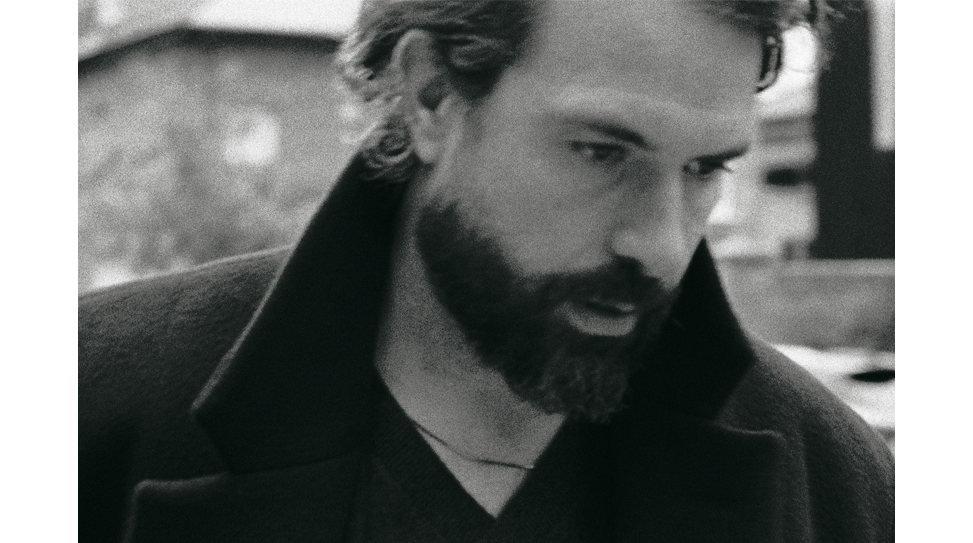

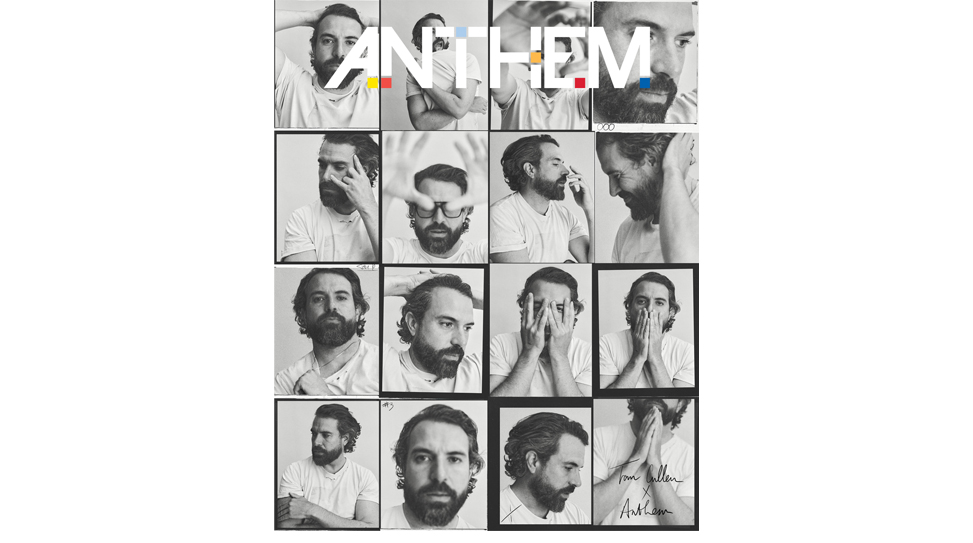
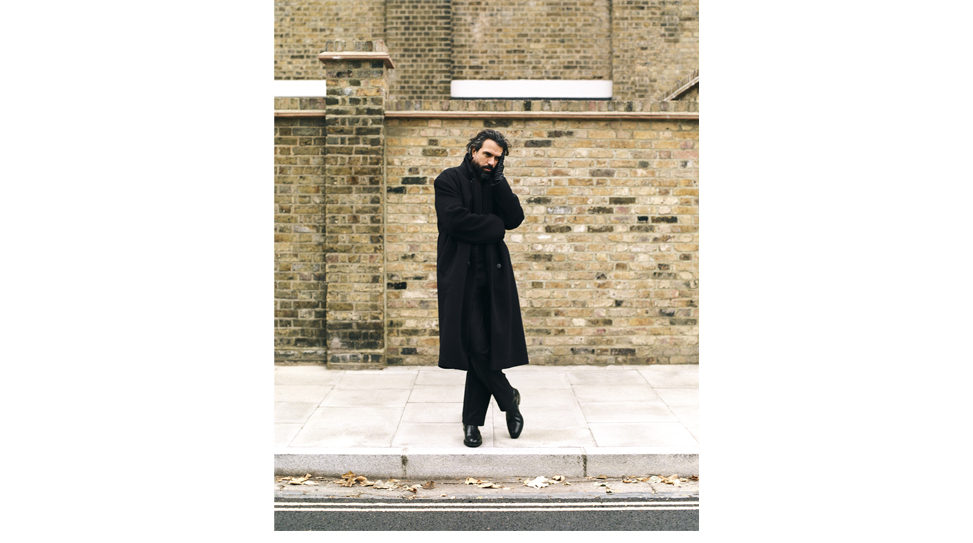
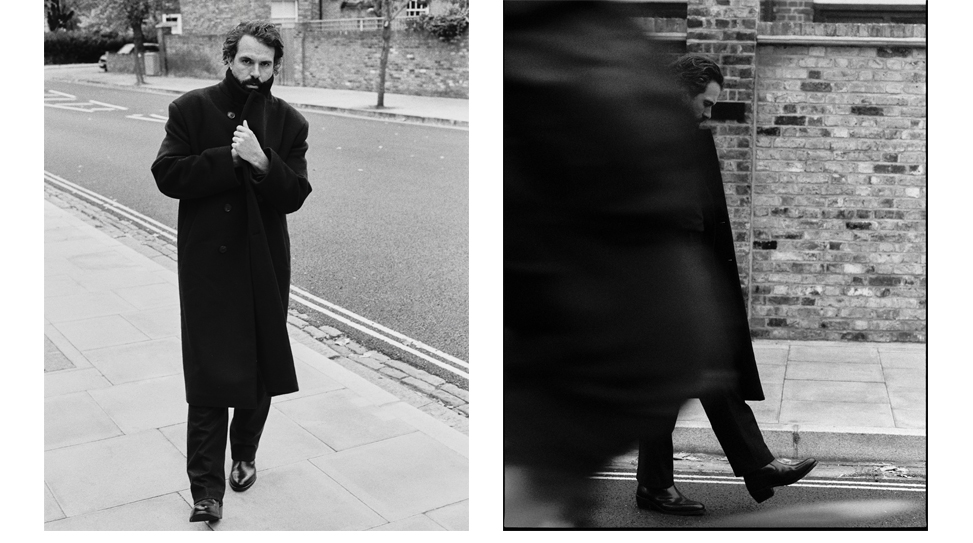
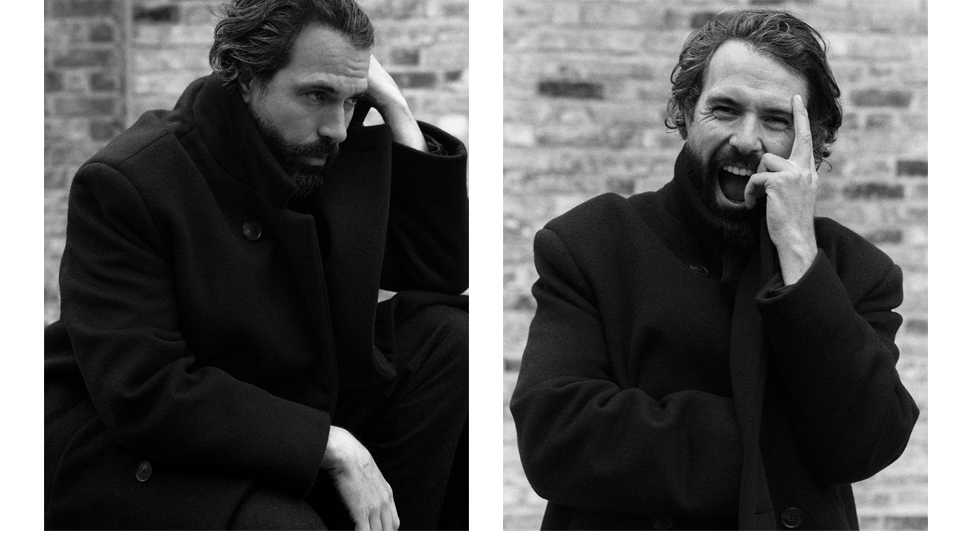
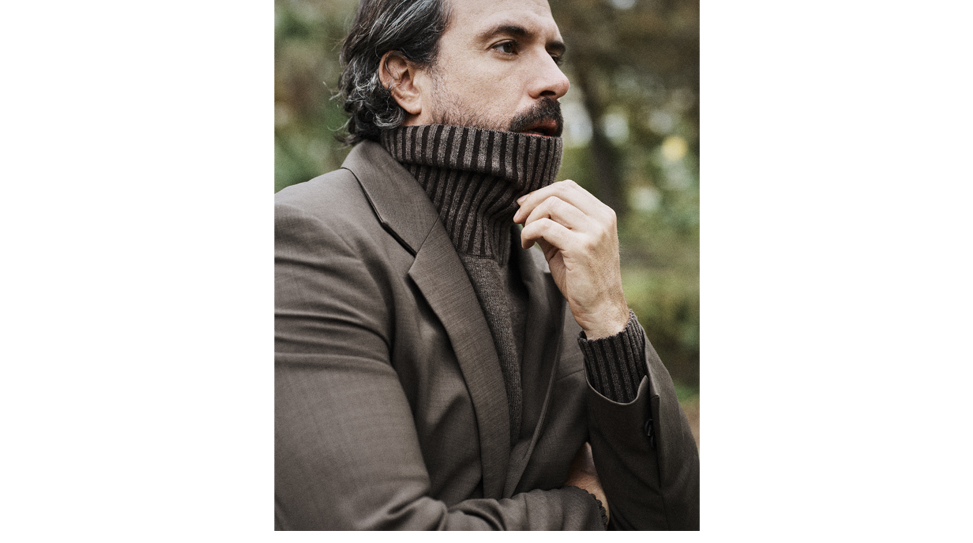
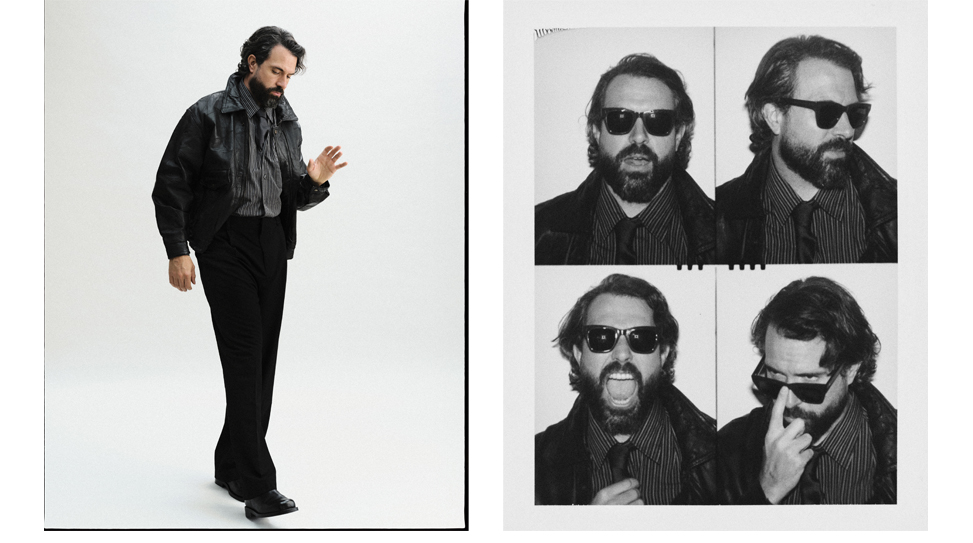
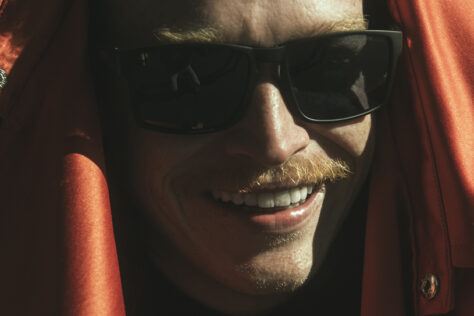 Let the Right One Win
Let the Right One Win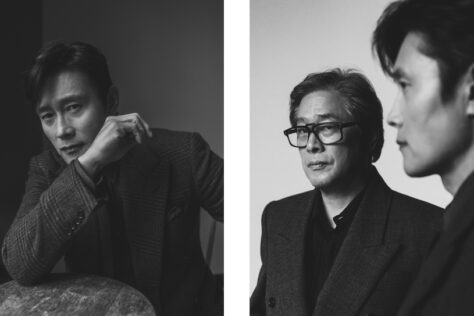 Endangered Species
Endangered Species
No Comments